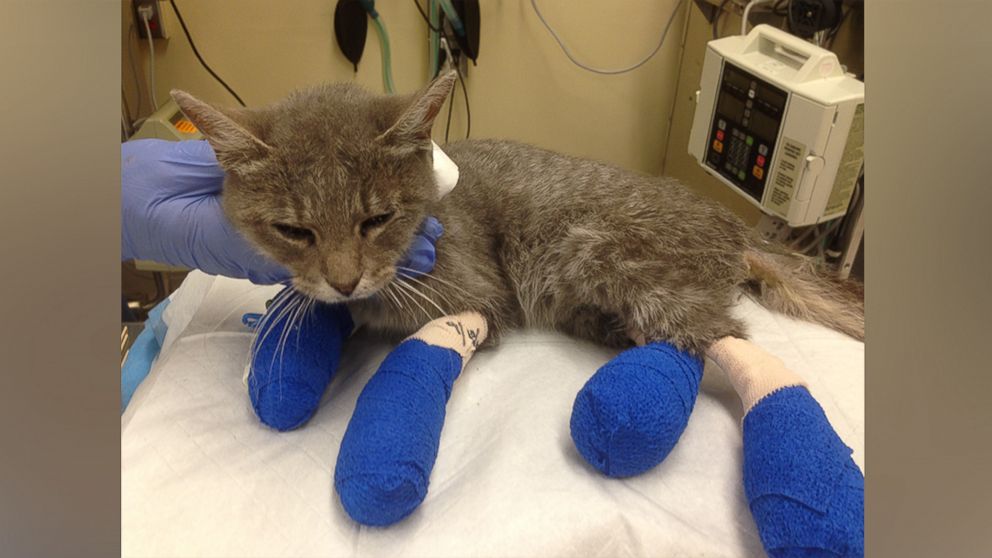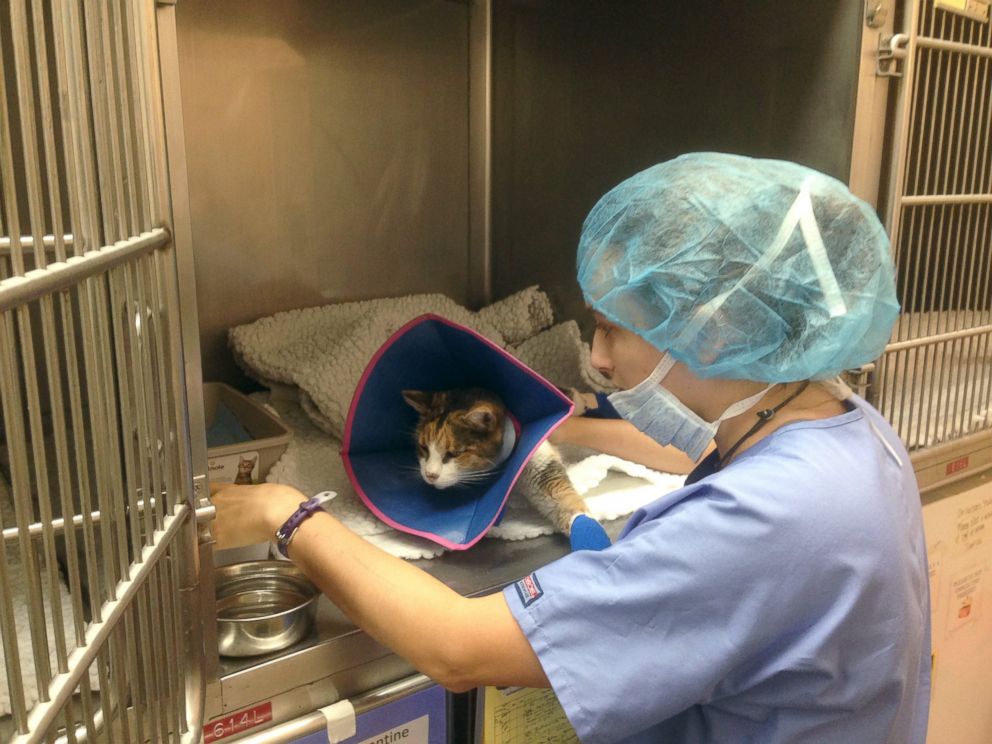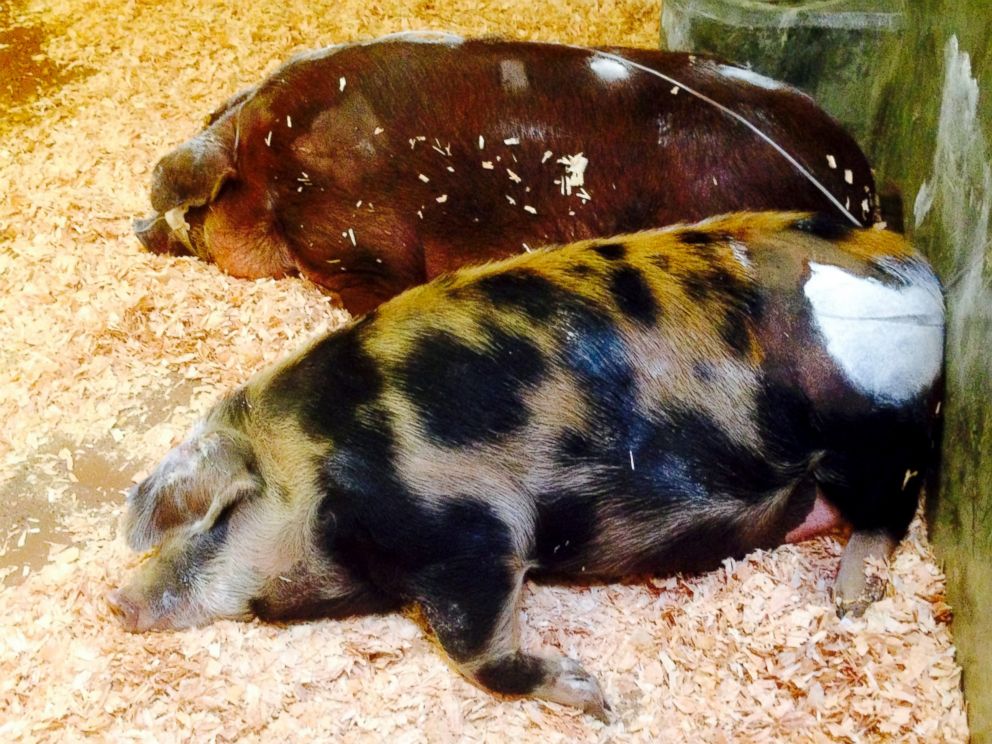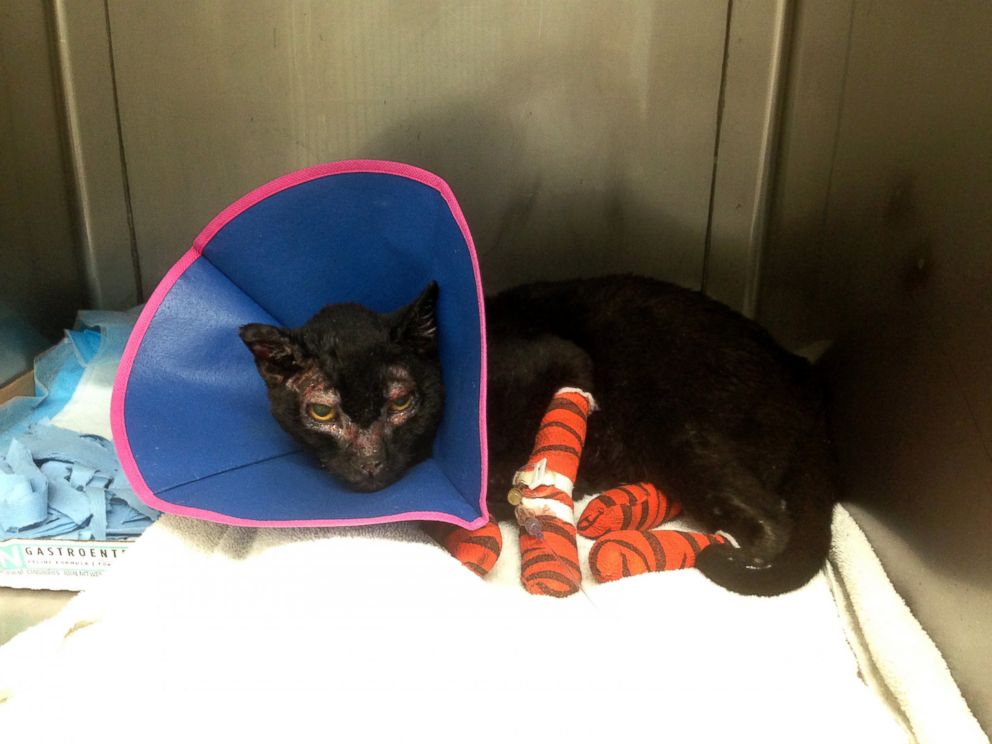Surviving Pets Show Another Side of California's Wildfires
Many animals were affected by NorthernCalifornia's wildfires.

— -- It is hard to forget the images from California’s recent wildfires. As the flames tore through the northern part of California, families were forced to leave everything and flee their homes. But there is another side that many did not see -- the pets that families were sometimes forced to leave behind.
“There were so many families who came in [to the evacuation center] who literally had 5 minutes to get out,” Wine Country Animal Lovers (WCAL) Board President Pam Ingalls told ABC News. Her organization volunteered at the Calistoga Evacuation Center in Napa County. While she was there, Ingalls met a dog owner who could not get back to their house to rescue their pup. Horse owners had no other choice but to open the pasture and let the horses run.
“It was really sad because there were a lot of people who got [to the evacuation center] without their animals,” she said. Other evacuees brought injured animals with them.

The UC Davis School of Veterinary Medicine treated more than 50 injured animals in the aftermath of the fires, according to Communications Officer Rob Warren.
“The overwhelming majority of animals had burns (1st, 2nd, and 3rd degree) to their paws and face,” Warren said.
Cats were by far the most commonly injured; however, the veterinary teaching hospital treated some more unusual animals as well, including four chickens, two pigs, two goats and a rabbit. Warren told ABC News that all of the animals are “showing great signs of improvement” but they will remain in the hospital for three to four more weeks.

Beyond just rescuing and rehabilitating the animals, many organizations are working to re-unite them with their owners. UC Davis located the owners of 11 of their treated animals. Groups have cropped up on social media dedicated to sharing pictures of lost and found pets, using hashtags like #ValleyFirePets and #ButteFirePets. In the wake of so much devastation, being able to reunite owners with their pets is a spot of hope.
“Most of the owners that we’ve identified have lost everything,” Warren said.

As communities work to rebuild, Ingalls suspects that their work will continue.
“There will be a lot of [pet] surrenders because people have lost their homes and don’t feel that they can care for them,” she said. Ingalls encourages those who want to help the animal survivors to adopt or donate for their medical needs.
“We’ve been able to do so much because of the community,” she said. “There’s a lot that we can do.”




